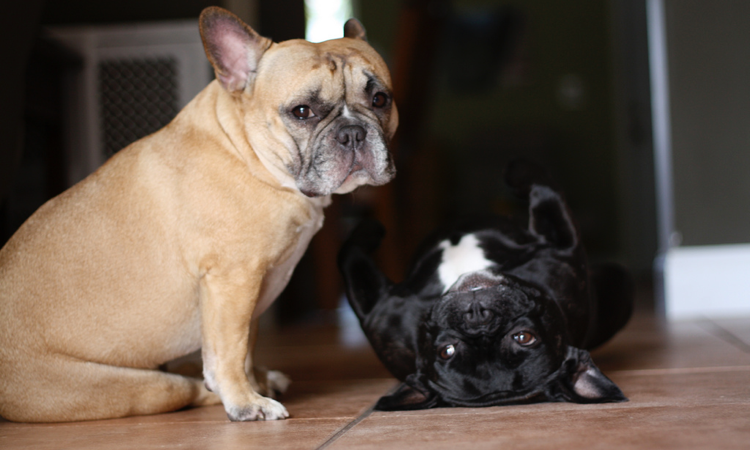So-called ‘flat faced dogs’ have been greatly discussed in the news recently, as vets and animal welfare charities, including the RSPCA, have been urging people to think twice before purchasing these dogs. Dog breeds including Pugs, French Bulldogs, English Bulldogs and others are sadly at greater risk of suffering from health issues associated with having a flat, or squashed face.
These dogs are known as brachycephalic – the scientific term meaning that they have flatter faces, which is also associated with smaller, narrower nostrils and abnormalities in their windpipes. Sadly, along with other problems experienced by pedigree dog breeds, these problems are present due to breeding that is often more concerned with how a dog looks than its overall health and welfare.
We got in touch with our friends at the RSPCA to tell us more about the health risks that owners of these dogs need to be aware of, as well as a few tips and suggestions for prospective dog owners.
What are the risks facing brachycephalic dogs?

It’s important to be aware of the health risks associated with brachycephalic dogs, and to realise these health issues could cause your dog serious problems which can be distressing to both dogs and their owners and can run up large vet bills, too. Here are some of the risks faced by flat faced dogs:
- Breathing issues: these breeds often suffer from narrow nostrils and abnormally developed windpipes, so exercise and playtime can become uncomfortable and stressful. Brachycephalic obstructive airway syndrome (BOAS) includes breathing problems and upper respiratory noise – snoring shouldn’t be considered cute or normal!
- Obesity: because of their breathing issues, these breeds can struggle to get enough exercise. Obesity is a serious problem for brachycephalic dogs, as it can make breathing issues worse.
- Eye problems: these can include ulcers on the cornea and inwardly folding eyelids. Dogs with nasal folds are sadly almost five times more likely to develop corneal ulcers than dogs without.
- Shorter life spans: a study found that extreme brachycephalic dogs lived for an average of almost 9 years in comparison to dogs without short muzzles live to almost 13. The unfortunate reality of owning one of these dogs is that on average, they won’t be around as long as some other dogs breeds.
As an owner of one of these dog breeds it’s important to be aware of the risks and especially to keep your dog at a healthy weight. Pugs, for example, are at particular risk of obesity and exercise intolerance and other dogs who struggle to recover from walking, running or play time will need to be carefully monitored by their owner and dog sitter to ensure they don’t get too tired. If you’re not sure if your dog is the right weight or worried they might be struggling, ask your vet for advice.
Got your heart set on a Pug or Frenchie?

If you’ve got your heart set on one of these dog breeds, why not consider adopting? The RSPCA rescues thousands of dogs each year, many of them still in need of a new, loving home. Adoption is a great way to give a dog a second chance, without directly encouraging the continued breeding of dogs who are more likely to develop serious health problems. All dogs deserve happy lives and happy homes, after all.
And if you are considering buying a puppy from a breeder, the RSPCA recommends using the Puppy Contract which will help ensure you are getting a happy and healthy dog. It’s a good idea to ask the breeder plenty of questions about the dog’s parents health history – here’s a handy, printable list of questions recommended by the RSPCA.
Got comments or questions? Join the conversation and let us know what you think by adding a comment below.